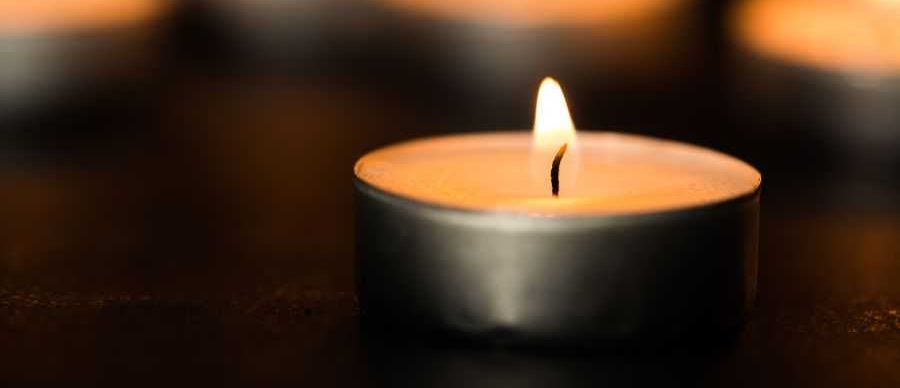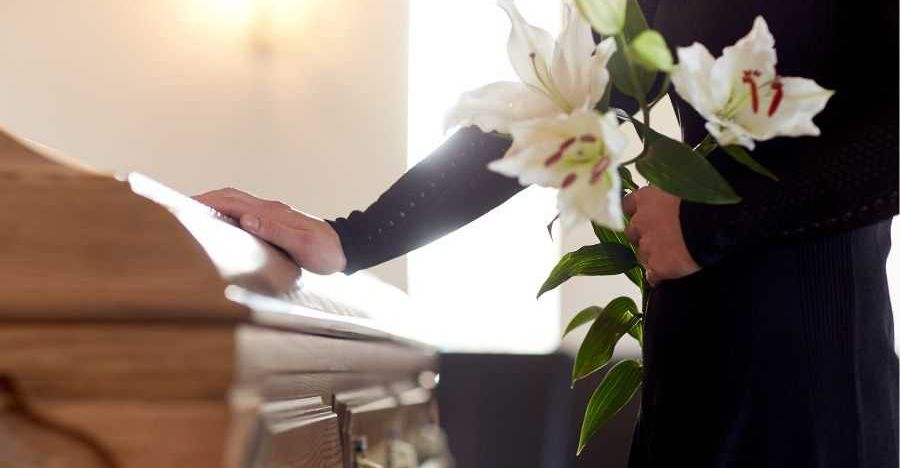Massachusetts woman writes her own obituary, leaving her grieving family laughing at her wit
"Well, if you're reading this obituary, I'm dead. WOW, it actually happened..."
Massachusetts woman's obituary leaves her family laughing
It can be depressing to think about your own mortality, but inevitably, everyone will eventually die. Those diagnosed with a terminal illness have the unfortunate task of thinking about the inevitability much sooner than their peers. Still, those like Linda Murphy aren't letting a diagnosis steal their humor.
Murphy seemed to be the life of the party, always ready to have a good time with friends and family. But over a decade ago, she was diagnosed with breast cancer; after beating that disease, she was diagnosed with Bulbar ALS, which runs in her family.
In her self-written obituary, she shares that her father, who passed away shortly before Murphy, lost his own mother to the same disease. Although devastating, the disease allowed her time to write her own obituary, which left her family and others giggling.

She starts by pointing out the obvious, "Well, if you are reading this obituary, it looks like I'm dead." That's when the humor kicks in as she jokes about dying from fear of missing out, "WOW, it actually happened ... I died of FOMO due to complications of Bulbar ALS."
Murphy points out that she was just 60 years old and way too young to die, but unfortunately, ALS had other plans. She was loved, as evidenced by her daughter's interview with the local news station. One section of her obituary is all about the yummy food she missed out on due to her no longer being able to swallow.

"As far as eating, it totally stinks to sit at the table while people around you are eating juicy burgers hot off the grill, heaping piles of Chinese food, a healthy portion of pasta Alfredo, or Chipotle — and I just have to smile and act like I'm enjoying my bowl of puréed baby mush!" she wrote.
Even though she expressed how hard it was to live with her disease, Murphy still made sure to throw in some laughs.
While talking about her 42-year marriage to husband David, she teases about the couple becoming a throuple when she had to be put on a respirator. "We both agreed, I was an "A" wife and he was a "B+" husband for a total "A-" which is pretty decent for 42 years together!!!" she wrote. "We became a thruple about 1.5 years ago when, Hosee, (my respirator) moved into our marital bed. From then on, David woke up next to what looked like a fighter pilot with smooshed hair!"

Murphy highlights her superpowers before her final plea for kindness. The woman was joyous even after death. Maybe it was her way of easing things for her family members or for herself. Maybe it was simply because that's who she was as a person, and she used her obituary as the final moment to give others a glimpse into her personality. Either way, her reminders about kindness and living life fully are lessons that can extend far beyond her family and friends.
"I lived my life with two super powers," she wrote. "My first, of which everyone was jealous, was that I could drink as much as I wanted and never seemed to get a hangover ... the real wonder is why I didn't die of liver failure. My second super power is that I was always genuinely happy and absolutely loved to be with nice people. Please be kind to everyone: the telemarketer, the grocery clerk, the Dunkin's staff, the tailgater, your family, your friends. Speak nicely and positively. Is there really ever a reason to be negative? I don't think so…"

